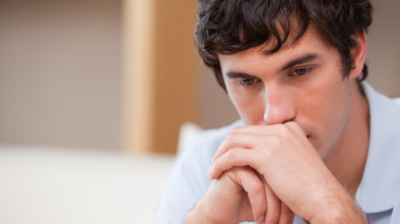My route to happiness through depression
Laura shares what they learned in their mental health journey and how you can seek support through an open dialogue.

The World Health Organisation estimates that around 280 million people experience depression globally. Proudly, I will admit that I am one of them. I’ve suffered from occasional periods of depression since I was sixteen years old. You may ask why I am proud of this fact, but the answer is simple: If I hadn’t had depression, I wouldn’t be the person I am today.
Without the trials of my youth, I would not have learned how to be truly happy and create the mental barriers that help me deal with everyday life. In a world where more and more people are losing hope and giving up on what gives them their spark, those barriers are an essential tool. By no means does my experience apply to all cases, but perhaps the hardship of depression actually started me along my own route to happiness.
My journey with mental health
It began when I was 16, I had just entered a new school in the Leaving Cert cycle. Not only was I an outsider in a long-established group at this school, but the difference in ability level between my new school and my previous one was staggering. It began slowly as I became more lethargic and apathetic than usual. There was little I could do to amuse myself any more, something I merely passed off as boredom or the struggles of being an angst ridden teen. In reality, it was much more than that.
Most of the time I felt empty, as if I couldn’t stir a reaction to anything because there was nothing left inside of me to stir. This continued for some time until finally something inside of me snapped. I was sitting in the middle of Maths class, anxiously admitting to the teacher that I had done the wrong page for homework.
As she began a five minute tirade about how I never listened and she was fed up with my mistakes, I felt the tears start to slide down my face. I had never liked crying in public, unwilling to show any weakness in front of strangers, so I sat with my head down and my hair covering my face. It wasn’t until a few minutes passed that anyone noticed the drops of water soaking my text book and I was finally allowed to leave the classroom.
Getting help from my guidance counsellor
After that began a long period where I simply wouldn’t go into class. I spent my days locked in the bathroom, the only door in my house with a working lock, and crying until there were no more tears left. It was easily the lowest point of my life, as I struggled to find something, anything inside of me that felt truly human. It was as if I had lost the ability to feel normal, and that scared me so much that the fear and anxiety that it caused became my new normal.
It wasn’t until I was forced by my strained parents to attend a jobs fair, and a counsellor at my former school decided to intervene. She recognised something in me that I didn’t even notice myself and gave me the help I needed to combat what I now knew as my depression. She not only helped me identify what was going on inside my own head, but she helped me explain that to my parents, a task that seemed harder than climbing the mountain ahead of me given the strain that my mood had put on our relationship. She also put me in touch with a doctor specialising in mental health who was able to help me figure out each step to take towards recovery. Without my guidance counsellor’s help, I’m sure I would have only slipped deeper, not knowing what was causing me to feel the way I did. Without her help, I fear I would have died.
Healing from depression
From there, I began to heal, and looking back on the process I realise now that there are many things that depression gave me beyond crippling anxiety and a record of dropping out of academia. My best friend of several years and I only connected through mutual mental health problems. When we looked at each other we noticed the broken strings of a mind far too strained against itself, and in so doing sought to tie them back together again.
Both of us became the other person’s support when times were hard, and this mutual dependence as it were has kept us close through both the best of times and the worst of times. I’m incredibly lucky to have my best friend and it goes to show that merely having a shoulder to lean on or an ear to listen to your woes can aid your recovery.
Gaining empathy and new connections
I’ve also found myself much more empathetic to those around me since suffering. Whenever I meet someone who previously I would have written off as stubborn or grumpy or unhelpful, I try to see why they could act this way. I try to piece together their story and learn from it in the hopes that I could help them or myself in future. What I’ve learned is that there’s almost always a reason for people’s actions, whether you understand them or not. I do not claim to have all the knowledge of people’s feelings, and by no means do I think that everyone can get along by hugging it out, but an open dialogue and understanding can help to bridge the gaps and make life easier on everyone involved.
My depression had a butterfly effect that has led me to who I am now. My depression has led me to meet new people, learn new things and walk down a path in life that I never would have set for myself and it has made me that much stronger as a result. I’ve lived through my own story with all its twists and turns.
Finding your light in the dark
I have viewed life with new eyes since clearing away the tears of my lowest points. Honestly, I think having depression has made me a better person overall, and while I wouldn’t wish the low points of the experience on my worst enemy, I do think that even in the darkest night, a light can be found. I would urge anyone reading to find their light, and live your story.
Feeling overwhelmed and want to talk to someone?
- Get anonymous support 24/7 with our text message support service
- Connect with a trained volunteer who will listen to you, and help you to move forward feeling better
- Whatsapp us now or free-text SPUNOUT to 50808 to begin.
- Find out more about our text message support service
If you are a customer of the 48 or An Post network or cannot get through using the ‘50808’ short code please text HELLO to 086 1800 280 (standard message rates may apply). Some smaller networks do not support short codes like ‘50808’.






